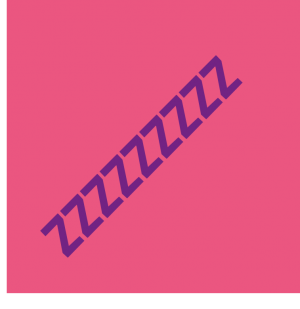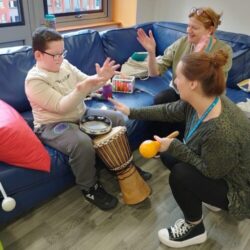
Lots of people have problems getting to sleep, staying asleep or dealing with nightmares that wake you up and make you feel frightened, unsettled and very tired….
Everybody will experience sleepless nights at some point in their life, and have bad dreams or nightmares too, this is completely normal. But, if you are finding it hard to sleep consistently, then it can start to have other effects on your life:
- Emotional effects of not getting enough sleep
- Mood changes causing you to feel more irritable
- Isolation due to low energy and not wanting to socialize
- Times of feeling low, flat or unhappy
- Physical effects of not getting enough sleep
- Weakened immune system
- Higher blood pressure
- Impaired coordination affecting your balance
- Ability to commit information to short term and long term memory is impaired
- Mental effects of not getting enough sleep
- Trouble with thinking and concentration
- Increase in the risk of accidents (such as when out in a park or driving if you’re an adult)
The Science of Sleep – Circadian Rhythm
As with everything in the body, the brain has a key role to play in your ability to sleep. Circadian rhythm can be thought of as your internal body clock. These rhythms are the cycles that tell your body when to sleep, wake, and eat, and they are governed by part of your brain called the Hypothalamus (this is also involved in things like your heart rate and blood pressure).
There are factors that influence your internal clock, like sunlight, temperature and screen time – all of which help to determine how energetic or tired you feel at various times of the day.
Your clock acts as a translator, so it takes into account what is happening in the environment around you, your brain uses this information to send signals to your body. For example, your eyes will detect darkness as night time approaches so a sleep hormone (melatonin) is released to promote sleepiness. This is why the recommendation not to use screens with blue light (iPads, Tablets, Phones etc) close to or at bedtimes is so commonly seen, because it can interrupt the messaging from your brain that are trying to say ‘it’s rest time, bed time’ and instead send you ‘it’s wake up time’ messages.
Having a routine is helpful to consistently good sleep, so waking up or going to bed at similar times each day is useful and supports regular melatonin production.
If you have ever travelled far away on an aeroplane and felt something called ‘jet-lag’, this is where your Circadian Rhythm (internal clock) has become out of synch so it makes you over tired and unable to sleep in the new time zone straight away because your body clock is still working to your normal patterns.
Interesting facts about sleep[1]
Here are some interesting facts about sleep that you may find surprising:
- The best temperature to sleep at is 18°C, which is far lower than most of us keep bedrooms
- Reading on an iPad vs a book affects your ability to fall asleep and reduces quantity and quality of your sleep
- Having a television in the bedroom contributes to a loss of 2 hours of sleep each week
- Blue light affects levels of your sleep at twice the levels of warm light. Avoid looking at bright screens beginning two to three hours before bed
- Being awake for 19 hours is as cognitively impairing as being legally drunk
- Caffeine consumption causes an average loss of 3 to 5 hours of sleep per week.
- Sleep has been shown to enhance athletic performance.
- Getting at least 8 hours of sleep can improve your immune function and help fight the common cold
The NHS has developed a website that has a short quiz asking you about your sleep patterns and habits and how you feel day to day; it will then give you a short 5 or 6 step ‘plan’ with ideas to help you rest and sleep. You might find something useful on here, it takes 2 minutes to do the quiz and you don’t need to give any personal details.
No big deal – I’ll just have more coffee/coke/energy drinks
When you are in a pattern where you don’t get enough sleep on a regular basis, your brain and body will not be able to function normally.
Caffeine is found in drinks like coffee, tea, Coca-Cola and energy drinks like Monster and Red Bull and people often try to use these drinks (or even food supplements that contain caffeine) to manage lack of sleep, but even these are not going to be enough to make up for your body’s need for sleep. They can make it worse by making it harder for you to fall to sleep at bedtime.
What’s my immune system got to do with it?
When you sleep, the links between cells in your brain (neurons) help you to sift through everything that’s happened during the day and create memories. This is for anything you experience, from fun times with friends or family to new information that you learn. If you are sleep deprived, your brain is too exhausted to make this process happen properly.
Equally, when you sleep your immune system is producing stuff inside your body to help fight off germs and infections. For example, it will produce cytokines which fight off viruses like colds and flu. They can also help you sleep which gives your immune system another boost to help defend yourself against falling ill. When you don’t get enough sleep, it stops your immune system from building up its protection and makes it harder to fight off common colds, sore throats etc. and might take you longer to recover from day to day illnesses.
How can I get better sleep?
- Be aware of your ‘clock’
- This article mentioned earlier about the Circadian Rhythm, trying to stick to a routine is a really good way of keeping your clock in good working order. This means waking up and going to bed at roughly the same times, eating at regular intervals and choosing healthy options as much as you can (obviously it’s important to treat yourself too)
- Take charge of your surroundings
- Comfort is important. Make sure you have a comfortable place to sleep that is warm and a good temperature for you. Having a really dark room helps (sending the right messages to your brain) and avoiding blue light (mobiles etc.) is helpful too
- Take charge of your brain
- Having a busy head is one of the most difficult things to switch off and a very common reason why people can’t fall to sleep. Have a read of the article “Slowing down, breathing, feeling calm” which has lots of mindfulness and relaxation tools in it, one or two of these might work for you to actively switch down the volume of things in your head to help you get to a restful state before sleep
- This web article has some useful ideas on blocking intrusive thoughts that prevent you from sleeping.
- Increase exercise
- This won’t work for everyone, but if you can add in some physical exercise each day, that can be a really natural way of promoting tiredness and bodily relaxation. Even just 10 minutes of something each day can make a difference
- Prepare yourself for sleep (winding down)
- This could be part of getting yourself into a pre-bed time routine which might include a nice warm bath, a hot (or cold) milky drink, low lighting around the whole house, listening to calm or quiet TV or radio programmes or calm and relaxing music
- Get out of bed
- This might sound a bit strange when this article is all about being in bed and sleeping; but if you really can’t sleep, then taking yourself out of bed and out of the bedroom to do something else for 15-20 minutes can help. It’s important that you don’t go into brightly lit rooms, spaces where there are loud noises because you are still trying to maintain a calm mental headspace. Perhaps getting up and having a hot drink (decaffeinated) for 20 minutes, or a low energy activity before taking yourself back to bed to try to sleep again
What causes nightmares?
Everyone dreams every night but we don’t always remember them. Dreams can be good or bad, we call them nightmares if they are negative. Often, after a nightmare, even if we can’t remember exactly what happened we can be left with the emotion experienced in the nightmare – which might include fear, anxiety, sadness, anger and distress. It is these thoughts and feelings that can make it hard to get back to sleep again after you’ve had one.
Nightmares usually happen late in the night (a few hours into sleep). Sometimes they happen because of something you have read or watched – it could be something seen or heard on the News or maybe a scary programme or film. These are the most common causes for nightmares in children.
For adults, the cause is often linked to trauma and stress. Some statistics state that 1/20 people get nightmares and if you have experienced a trauma of any kind that increase to 9/10 people experiencing nightmares.
How do I stop having them?
It is difficult to give a straightforward answer to this; we can’t really stop dreams or nightmares because they are a means of our brain sifting through or processing things that we have experienced during the day or on previous days.
- Writing it down – If you are having regular nightmares and you can recall the details it might be useful to have a ‘dream diary’ where you note down the key themes of what’s happening and who is involved in your nightmare. This could help to identify if there is something you can change in your ‘waking’ day that would influence your bad dreams.
- Dream completion – This YouTube clip introduces something called the “Dream Completion Technique” created & presented by Dr. Justin Havens and may give you some ideas of coping with nightmares.
- Trauma – if you feel that your nightmares are replays of something you have been involved in which is traumatic, we have a counselling intervention that we could offer called REWIND. It can be done over just 2 or 3 sessions and is specifically designed to stop intrusive thoughts (whether you are awake or asleep) from happening
Summary
Hopefully this article has given you some things to think about.
If you wanted to meet with one of our counsellors to just talk about how you could get better rest or sleep we would be very happy to do that.
Sometimes just having one or two sessions can be enough to help you learn new tools that could make your every-day life a bit easier, we can also talk to you in a bit more detail about REWIND.
You can see our pictures and a bit of information about us on this website under the link “Introducing the team: Counselling – what’s it all about?”
Remember too, you can come back and read this article any time you like, however many times you like. That can be useful to help you remember some of the key messages and tools.
[1] Taken from https://www.medicalert.org.uk/news/2019/03/15/secrets-of-sleep?gclid=CjwKCAiAj-_xBRBjEiwAmRbqYhReHHqMeXcmncasObdZqdFA_9zaPCh-i4iJHsH8jiQfuWIzGkh1dRoCJMwQAvD_BwE



